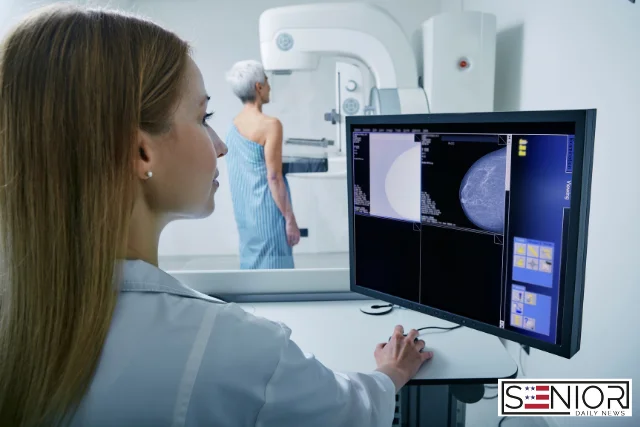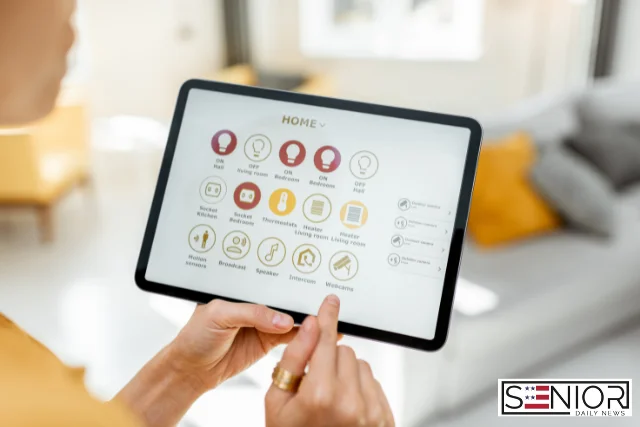The Power of Proactive Health Screenings: Beyond the Annual Checkup

When it comes to staying healthy, most people think of their annual checkup as the gold standard. You visit your doctor once a year, get a quick evaluation, maybe a few lab tests, and you’re on your way. But here’s the truth: for many, especially senior citizens, that yearly visit may not be enough. Enter proactive health screenings—a powerful tool that goes beyond the traditional checkup to truly safeguard your health.
What Are Proactive Health Screenings?
Proactive health screenings are scheduled tests or evaluations designed to catch health issues early, often before symptoms appear. These screenings are not just about ticking boxes—they’re about staying one step ahead of potential problems. Think of them as a proactive investment in your long-term well-being.
Examples include mammograms, colonoscopies, bone density scans, and blood pressure checks. For older adults, these can also include cognitive assessments, hearing and vision tests, and screenings for conditions like diabetes or high cholesterol.
Why Senior Citizens Should Prioritize Screenings
As we age, our risk for certain conditions naturally increases. Chronic illnesses such as heart disease, diabetes, osteoporosis, and certain cancers become more common. The good news? Many of these can be managed more effectively—or even prevented—when caught early through routine screenings.
Key Benefits for Seniors:
- Early Detection: The sooner an issue is spotted, the more treatment options are available.
- Improved Quality of Life: Catching a condition early often means less invasive treatment and a quicker return to normal activities.
- Cost Savings: Preventative care often costs less than treating advanced diseases.
- Peace of Mind: Regular screenings can provide reassurance and help you feel more in control of your health.
Going Beyond the Basics: Screenings You Might Not Be Getting
1. Cognitive Function Tests
Cognitive decline can be subtle. Periodic mental status exams can help catch early signs of Alzheimer’s or other forms of dementia. Early intervention can delay progression and improve outcomes.
2. Hearing Tests
Many seniors experience hearing loss gradually, and they may not realize it’s happening. Routine hearing checks can identify issues that, if untreated, could contribute to social isolation or even cognitive decline.
3. Vision Screenings
Conditions like glaucoma, macular degeneration, and cataracts are common with age. Regular eye exams can help maintain vision and prevent falls or accidents.
4. Bone Density Scans
Osteoporosis often has no symptoms until a bone is broken. DEXA scans can help identify low bone density and allow for lifestyle changes or medications to prevent fractures.
5. Vascular Health Checks
Ankle-brachial index tests and carotid ultrasounds can help detect peripheral artery disease or carotid artery disease, both of which can lead to stroke.
Personalizing Your Preventative Plan
No two people are alike, and your health screening needs may differ based on personal and family history, lifestyle, and current health status. This is where working with your healthcare provider becomes essential.
Discuss:
- Your family medical history
- Any new symptoms or concerns
- Lifestyle habits such as diet, exercise, and smoking
From there, your doctor can create a customized screening plan tailored to your needs.
First Steps for New Patients or Seniors Revisiting Care
If you’re new to a doctor or haven’t been for a checkup in a while, getting started may feel overwhelming. Here’s a simple first vet visit guide-style checklist for humans:
Barriers to Getting Screened—and How to Overcome Them
1. Transportation Issues
If getting to the clinic is tough, ask your provider about mobile screenings, telehealth options, or transportation services for seniors.
2. Cost Concerns
Medicare and many insurance plans cover most recommended preventative screenings. Check with your provider or a Medicare counselor to understand your benefits.
3. Fear of Results
It’s natural to feel anxious, but remember: finding out early often means better outcomes. You’re not alone—your healthcare team is there to support you.
4. Confusion About What’s Needed
Ask for a personalized screening schedule. Many clinics provide reminder systems or printed plans to help you stay on track.
Creating a Culture of Proactive Health
The best way to stay healthy as you age is to make prevention a habit. That means treating health screenings like any other essential part of life—like paying bills or getting your car serviced.
Talk openly with your family about your healthcare plan. Encourage your peers to stay up-to-date on their screenings. When proactive health becomes the norm, everyone benefits.
FAQs
Q: How often should I have health screenings? A: It depends on the screening and your personal health profile. Some, like blood pressure checks, may be recommended annually or more often. Others, like colonoscopies, may be every 10 years. Consult your doctor for a tailored schedule.
Q: Are all screenings covered by Medicare? A: Many preventative screenings are covered, including mammograms, colonoscopies, diabetes screenings, and more. Some newer or more specialized tests might not be fully covered, so it’s best to check with your provider or Medicare directly.
Q: I feel healthy—do I still need screenings? A: Yes! Screenings are designed to catch issues before symptoms appear. Feeling healthy doesn’t always mean everything is working perfectly under the surface.
Q: What’s the difference between a checkup and a screening? A: A checkup is a general assessment of your health, often involving a physical exam and basic tests. Screenings are specific tests aimed at identifying certain health conditions, often before symptoms are noticeable.
Q: Can I do any screenings at home? A: Some screenings, like blood pressure or glucose checks, can be done at home with the right equipment. Others, like colon cancer screening kits, are available for home use but should still be coordinated through a healthcare provider.
Image Designed Using Canva






